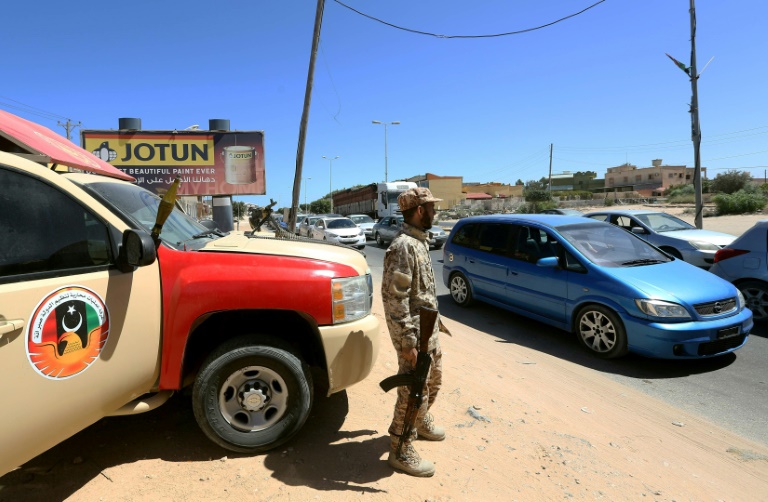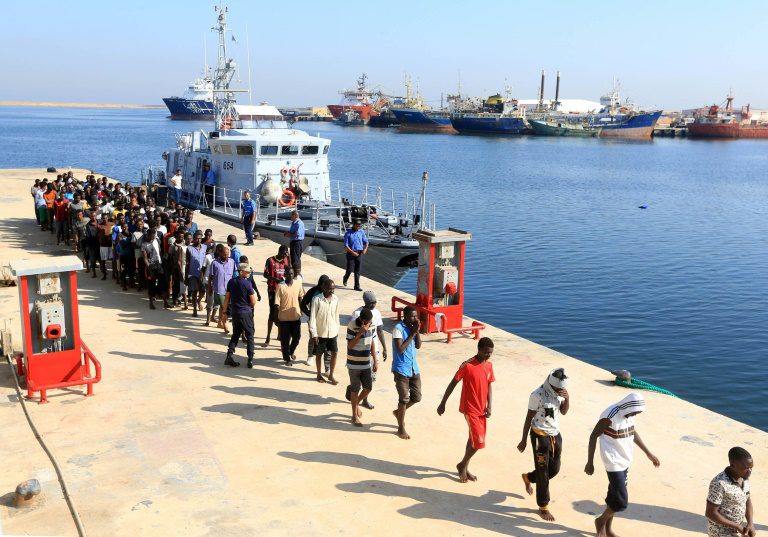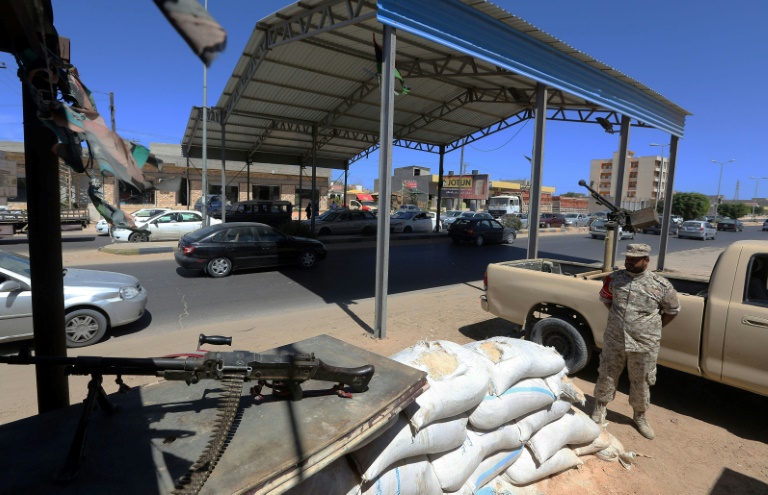Promises broken as pupils are left without schools
The results have been noticed on the other side of the Mediterranean where the number of arrivals on the Italian coast has dropped dramatically.
Italy has registered 6,500 arrivals since mid-July, barely 15 percent of the average for the same period between 2014 and 2016.
Libyan officials say the falling number is due to stronger surveillance by the coastguards of both countries, as well as pressure on major people smuggling gangs in Sabrata.
Six years since a revolution and NATO intervention that toppled dictator Moamer Kadhafi, violence-wracked Libya has become a key gateway for clandestine migration to Europe.
But now traffickers in Sabrata, 70 kilometres (45 miles) west of Tripoli, are preparing to hand security forces thousands of migrants they had planned to put on makeshift boats heading for the Italian coast, Sabrata security officials told AFP.

Members of a Libyan force tackling clandestine migration man a checkpoint in Sabrata on September 11, 2017
“We are giving them a chance. It’s an opportunity for traffickers to repent,” said Bassem Ghrabli, commander of a force tackling clandestine migration.
Libya’s unity government originally formed the force to battle the Islamic State group after it briefly occupied the centre of Sabrata in 2016.
“Since the creation of this cell, we have had support from the Government of National Accord. Before, we didn’t have the means to fight the traffickers, who were better armed,” Ghrabli said.
“We expect (the smugglers) to hand over more than 10,000 migrants to us.”
– Threats –
Ghrabli said 90 percent of the city’s traffickers had agreed to halt their illegal activities after negotiations with residents.

Violence-wracked Libya has become a key gateway for clandestine migration to Europe since the 2011 revolution
“We gave them an ultimatum: we will no longer tolerate such activities in the city. If they do not agree to abandon their trafficking, we will use force,” he said.
In an eastern suburb, warehouses are being rehabilitated to house migrants.
“They are big enough to house thousands of people” waiting to be repatriated, Ghrabli said.
On the other side of the huge dust-swept yard, prefabricated building sites, initially set up as offices, will accommodate women, he said.
Migrants waiting to embark towards the Italian coast are usually held in warehouses the traffickers have set up along the beach.
“Those warehouses will be destroyed,” the officer said.
Some trafficking barons, who control whole sections of the city, have even built their own jetties, from which dozens of boats loaded with migrants leave every day.
Sabrata mayor Hussein Dhawadi said residents and security forces had “sent a strong and threatening message to the traffickers: ‘If the migrants do not leave the city, there will be clashes.’ This message was well understood by the smugglers.”
– ‘Under the table’ –
Ghrabli said the traffickers “understood the risks” they were taking.

Members of a Libyan force tackling clandestine migration man a checkpoint in Sabrata on September 11, 2017
Libyan security forces have a growing presence in the city, whilst across the Mediterranean, Italy has reinforced its maritime surveillance, he said.
He said that suspected IS jihadists are still present in the city and continue to benefit from human trafficking.
“The Europeans have also understood that they are under threat from terrorists” who can infiltrate Europe by hiding among migrants, he said.
Some traffickers have tried to adopt a new image so their criminal past is forgotten, Ghrabli said.
One of the best-known trafficking barons, whose forces control half of the city, a few weeks ago became head of a force tackling clandestine migration.
That came after an alleged “agreement under the table” with Italian officials at an informal meeting with major traffickers in July in Malta, according to widespread rumours repeated by officials in Sabrata.
“I asked the ambassador and the Italian interior ministry but they denied having been party to such an agreement. But even the traffickers themselves talk about” the meeting, the city’s mayor said.
Download our app and read this and other great stories on the move. Available for Android and iOS.